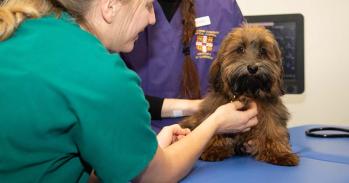
The University is a partner in a three-year, multi-million pound project which will test public reaction to driverless cars, and conduct real-world testing on public roads around Milton Keynes and Coventry.
The University is a partner in a three-year, multi-million pound project which will test public reaction to driverless cars, and conduct real-world testing on public roads around Milton Keynes and Coventry.
People are starting to accept many of these features as commonplace, and we will be testing some of the more advanced ‘driver assist’ technologies in the earlier part of the programme
John Miles
The University of Cambridge is a partner in the ‘UK Autodrive’ consortium, which was announced as the winner of the UK Government’s £10 million ‘Introducing Driverless Cars’ competition in the 2014 Autumn Statement.
The aim of the project, which involves local authorities, technology and automotive businesses and other academic institutions, is to establish the UK as a global hub for the development of autonomous vehicle technologies, and to integrate driverless vehicles into existing urban environments by trialling them in two UK cities.
Not only will the programme help develop the new protocols and connected infrastructure required to deliver future autonomous mobility, it will allow the UK Autodrive team to test public reaction to both driverless cars and self-driving pods.
The funding, provided by Innovate UK, will be matched by the 12 consortium members to create a £19.2 million three year project which will be led by design and engineering consultants Arup. The feasibility studies and practical demonstrations will take place in Milton Keynes and Coventry, where the city councils are taking the lead in developing the urban infrastructure technologies required to support driverless mobility.
The University’s role involves looking at the feasibility of driverless public transport (L-SATS, or Low-Speed Autonomous Transport System), assessing the public’s reactions to and perceptions of autonomous vehicles, and assessing their possible impact on congestion. The studies will provide insights for vehicle manufacturers, cities, commercial operators, legislators and insurers to develop the legal framework for the roll-out of autonomous mobility.
On-road testing will include the real-world evaluation of passenger cars with increasing levels of autonomy, as well as the development and evaluation of lightweight fully autonomous self-driving pods designed for pedestrianised spaces.
“Many cars which are available today already have some degree of autonomy, through technologies such as automatic parking,” said Professor John Miles of the Department of Engineering, who designed the programme and established the consortium. “People are starting to accept many of these features as commonplace, and we will be testing some of the more advanced ‘driver assist’ technologies in the earlier part of the programme.”
“As well as developing and testing the in-car, car-to-car and car-to-infrastructure technologies that will be required to drive cars autonomously on our roads in the future, the project will also place great emphasis on the role and perceptions of drivers, pedestrians and other road users,” said Tim Armitage, the UK Autodrive Project Director at Arup.
The consortium’s plans for the practical demonstration phases is to start testing with single vehicles on closed roads, and to build up to a point where all road users, as well as legislators, the police and insurance companies, are confident about how driverless pods and fully and partially autonomous cars can operate safely on UK roads.
“Cars that drive themselves would represent the most significant transformation in road travel since the introduction of the internal combustion engine,” said Nick Jones, lead technologist at Innovate UK. “There are so many new and exciting technologies that can come together to make driverless cars a reality, but it’s vital that trials are carried out safely, that the public have confidence in that technology and we learn everything we can through the trials so that legal, regulation and protection issues don’t get in the way in the future.”
Business Secretary, Vince Cable said: “The UK is a world-leader in the development of driverless technology, and today’s announcement will see driverless cars take to city streets from 1 January. This not only puts us at the forefront of this transformational technology but it also opens up new opportunities for our economy and society.”
“Through the government’s industrial strategy we are backing the automotive sector as it goes from strength to strength. We are providing the right environment to give businesses the confidence to invest and create high skilled jobs.”
The partners in the consortium are Arup, Milton Keynes Council, Coventry Council, Jaguar Land Rover, Ford Motor Company, Tata Motors European Technical Centre, RDM Group, MIRA, Oxbotica, AXA, international law firm Wragge Lawrence Graham & Co, the Transport Systems Catapult, the University of Oxford, University of Cambridge, and the Open University.
The text in this work is licensed under a Creative Commons Licence. If you use this content on your site please link back to this page. For image rights, please see the credits associated with each individual image.





